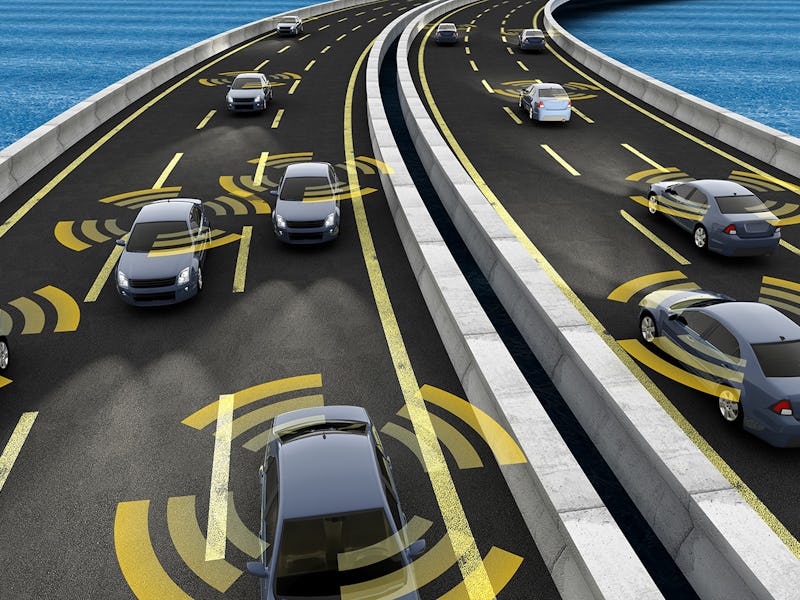Self-Driving Cars Will Dent the $871 Billion Cost of Car Wrecks

Autonomous cars have the potential to end traffic accidents as we know them, according to new research. Over the coming years, the technology could halt 90 percent of accidents and save almost 300,000 lives per decade. This would transform the world, with thousands living longer than ever before.
“There’s just these huge, shocking numbers that really…I thought it would be shocking, but this is beyond even what I thought could be even possible for just motor vehicle accidents,” Kyle Olsen, senior content manager at Digital Third Coast, the marketing agency that produced the end report, tells Inverse. “There’s just so many ways to slice this data.”
Olsen’s team worked with Chicago-based personal injury law firm Cooney and Conway to research how autonomous cars would change accidents. The findings are fascinating: According to data the team collected from the National Highway Traffic Safety Administration, deaths caused by traffic accidents have an $871 billion economic and social impact on the United States. That figure includes $23.3 billion in medical costs, $1 billion in emergency services and $10.9 billion in legal costs.
Autonomous cars, capable of weaving in and out of traffic and stopping at a moment’s notice, could change that. In fact, automakers like Tesla CEO Elon Musk believe that even semi-autonomous systems like Tesla Autopilot could prove safer than fully manual driving, as the sensors can detect objects that even humans cannot see.
Imagine, Scrabble in your autonomous car.
“One of the things I should mention that, frankly, has been quite disturbing to me, is the degree of media coverage of Autopilot crashes, which is basically almost none, relative to the paucity of media coverage of the 1.2 million people that die every year in manual crashes,” Musk said during an October interview. “If, in writing some article that’s negative, you effectively dissuade people from using an autonomous vehicle, you’re killing people.”
The team found that the federal government wants to fast-track the adoption of autonomous cars as a path to reaching zero road traffic accident deaths in just 30 years. It’s ambitious, especially as Toyota Research Institute chief executive Gill Pratt has said that fully autonomous vehicles are “not even close” to launch, but semi-autonomous vehicles can bridge the gap between now and then.
Tesla is developing self-driving technology it hopes will send a car coast to coast without a human touching the steering wheel once.
The data makes a lot of assumptions about changing driving habits, though. If autonomous cars remain a niche confined to big cities, for example, it may change accident rates less than expected.
“People actually love driving,” Olsen says. “I think there’s people that see it as a therapeutic thing…car enthusiasts and people that love the sport of it, I think are still going to be around in 50, 100 years.”
Take a look at the team’s graphic below:
The team's research.